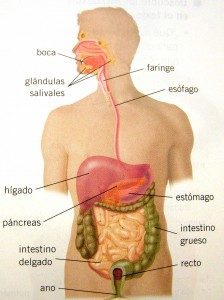 Behaviorism is based on a fundamental idea: a stimulus A causes a response B and the mechanism that explains this interaction is conditioning. This approach was nuanced and supplemented from 1930 with the vision of neo-behavioral psychologists such as Skinner, Thorndike and Hull. Neo-behaviorists argue that the variables of stimulus, response and conditioning are not enough to understand behavior, so it is also necessary to understand the mental processes that affect human beings.
Behaviorism is based on a fundamental idea: a stimulus A causes a response B and the mechanism that explains this interaction is conditioning. This approach was nuanced and supplemented from 1930 with the vision of neo-behavioral psychologists such as Skinner, Thorndike and Hull. Neo-behaviorists argue that the variables of stimulus, response and conditioning are not enough to understand behavior, so it is also necessary to understand the mental processes that affect human beings.
Behaviorism is a current of psychology that began at the beginning of the 20th century and its highest representative was J. B Watson
The basic axes of behaviorism are the following: the object of study of psychology is observable behavior and the method to be followed is experimental observation. In this way, the behaviorist approach broke with the previous tradition, in which states of consciousness were analyzed and introspection was the fundamental method of analysis.
Fundamental aspects of neo-behaviorism
The main object of study is learning and the purpose of this current is to create a general theoretical framework of learning.
There is an analogy between the human mind and the computer. Starting from this similarity as a model, neobehaviorists explain what happens in the mind when performing a certain activity. This implies that the individual cannot be understood as a simple organism of input and output of information, but it is necessary to analyze the mental processes that intervene in their behavior.
It should be noted that mental processes are not observable but have a role in human behavior, as happens with expectations or cognitive maps.
Neo-behaviorism has focused on issues such as empathy, motivation, and perception
With regard to learning, psychologists of this current give relevance to the aspects that intervene in the learning process, such as language or emotions.
 Neo-behaviorism emphasizes the role of the environment in the learning process and the importance of methods for controlling behavior. In this way, the environment acts as a reinforcing mechanism on the individual, both in a positive and negative sense. Consequently, if the reinforcements are modified in a given environment, it will be possible to provoke a change in human behavior.
Neo-behaviorism emphasizes the role of the environment in the learning process and the importance of methods for controlling behavior. In this way, the environment acts as a reinforcing mechanism on the individual, both in a positive and negative sense. Consequently, if the reinforcements are modified in a given environment, it will be possible to provoke a change in human behavior.
An individual's personality is the result of three related parameters: the personal and social environment in which he lives, the reinforcements he receives, and the mental processes he creates.
Photos: iStock - Enis Aksoy / Nastia11









